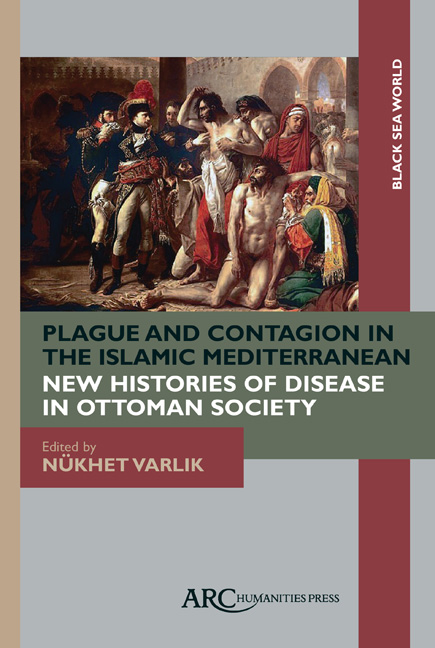A Historiography of Epidemics in the Islamic Mediterranean
Published online by Cambridge University Press: 25 January 2021
Summary
THIS ARTICLE IS a survey of the historiography of epidemics in the Islamic world written mainly in English and French, with some Turkish and German. My aim is to identify the main historiographical trends in studies concerning pre-modern epidemics (especially plague) in the Islamic world. The gist of my argument is as follows: earlier scholars of Islamic plague history obeyed the rules of the field of Islamic history / Islamic studies within which they operated. Current scholars, however, see themselves as operating within several fields of study rather than being restricted to Middle Eastern studies. Therefore, they are a part of the community of plague historians, of environmental historians, or historians of colonialism, to name but few possibilities. I intend to follow this shift and discuss the way in which the historiography of epidemics in the Middle East changed and its methodologies reformulated.
The chapter is organized as a discussion of themes, styles, norms and prejudices common in academic writing on epidemics in the pre-modern Middle East. I will point out to the common ground and discrepancies that molded individual studies into a corpus with a discourse. The article shows the similarities of questions and methodologies between Islamic plague historians and their colleagues specializing in other regions, yet highlighting the specific concerns, interests, aims, as well as problems that characterize this field. The chapter displays that although Islamic plague history evolved quite later than other themes in Islamic historiography – only in the last quarter of the twentieth century, the current generation of plague historians matured to form an independent academic discourse.
Long Delay in the Coming of Islamic Plague History
Islamic or Middle Eastern history is a well-established field. Since its modern inception around the turn of the twentieth century, Middle Eastern history diversified and covered numerous branches of enquiries, ranging from language to law, from architecture to politics. Plague was not one of them.
In European historiography, interest in the history of epidemics is evident in the nineteenth century. The cholera pandemic of the 1830s seems to have been what inspired European historians to write about the history of plague. The 1890s, however, was the ultimate turning point because of the break out of the Third Plague Pandemic and cholera.
- Type
- Chapter
- Information
- Plague and Contagion in the Islamic Mediterranean , pp. 3 - 26Publisher: Amsterdam University PressPrint publication year: 2017



